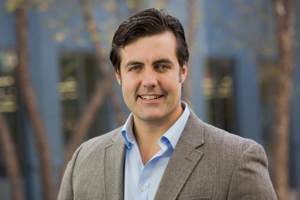
Changes in December 2013 to Facebook’s News Feed algorithm has resulted in an approximately 40% decrease for fan pages status updates’ organic reach, according to data from EdgeRankChecker. The reason for the decline is that a post’s prevalence on fans’ News Feeds is now being influenced by users predicted response to it based on the post’s content and the engagement of past posts.
To gain some insights into how hotel companies can most effectively improve their social media strategy in light of the algorithm change, HOTELS spoke with Lee McCabe, Facebook’s global head of travel, vertical strategy.
HOTELS: How much has the new algorithm decreased Fan Pages’ reach and engagement?
Lee McCabe: The goal of every update to News Feed is to show people the most interesting stories at the top of their feed and display them in the best way possible. Facebook is keen on improving the relevance and quality of the ads people see, therefore we regularly run tests to work out how to make the experience better.
When deciding which ad to show to which groups of people, we place more emphasis on feedback we receive from people about ads, including how often people report or hide an ad. That means marketers can show people ads that their audience will find most relevant and fewer ads they likely wouldn’t be interested in.
For marketers, this means we are showing ads to the people who might want to see them the most. For example, if someone always hides ads for electronics, we will reduce the number of those types of ads that we show to them. This means that some marketers may have seen some variation in the distribution of their ads. Our goal is to make sure we deliver the most relevant ads, which should mean the right people are seeing a specific ad campaign. This is ultimately better for marketers, because it means their messages are reaching the people most interested in what they have to offer.
HOTELS: What kind of content and frequency of posting will help boost a hotel company’s Facebook fan page posts in a users’ News Feeds? What role does engagement play?
McCabe: Engagement is a key component for marketers. It’s important that content is high-quality, engaging ad creative with images and smart content. For example, image-based posts deliver better results for advertisers, as well as using relevant stories along with content that is trending in real-time can help grow awareness. It’s no longer in marketers’ best interest to just get customers as fan, but it’s about reaching consumers with relevant messaging that they’ll want to engage with. Content these days need to be timely, specific and relevant.
HOTELS: Are there any types of posts and/or tactics that penalize a fan page’s posts in News Feeds?
McCabe: People tell us what types of ads they want to see and don’t want to see. When a person interacts with an ad (clicks, likes, comments on, or shares), News Feed learns that these ads are relevant for them. When someone hides an ad, News Feed learns that that person wants to see less of those types of ads.
HOTELS: What hotel marketing success stories have you seen on Facebook?
McCabe: Savvy marketers are capitalizing on Facebook’s rich targeting capabilities, which bear powerful results far greater than relying solely on organic reach. One way to do this includes using our Custom Audiences tool, which empowers marketers to find their current customers on Facebook and reach them with relevant ads via any device. Essentially, we can pair Facebook’s data with any data marketers have to maximize reach and the efficiency of that reach. So, if a hotel has a database of the emails for people who stayed last Christmas, they can use Custom Audiences to reach that same group of people on Facebook and show them an ad on Facebook for a discounted rate this holiday season. This plays a huge role in hotels working to retain their customers — an issue important to hotels large and small.
MGM Resorts International, Las Vegas, has done an excellent job using Facebook to acquire new customers, convert them into guests, and ultimately retain them as loyalists, which is an issue hotels have always grappled with. They have consistently seen returns on ad spend higher than 3x for each stage of the purchase. The brand looks to inspire and engage with their fans through branding and awareness on Facebook that highlights the unique experiences available at each of its resorts. Using products Custom Audiences and retargeting on Facebook Exchange, the brand has seen a positive return on ad spend, resulting in a more than 5x return on ad spend using custom audiences targeting its customers on Facebook and a 15x return on ad spend using Facebook Exchange.
